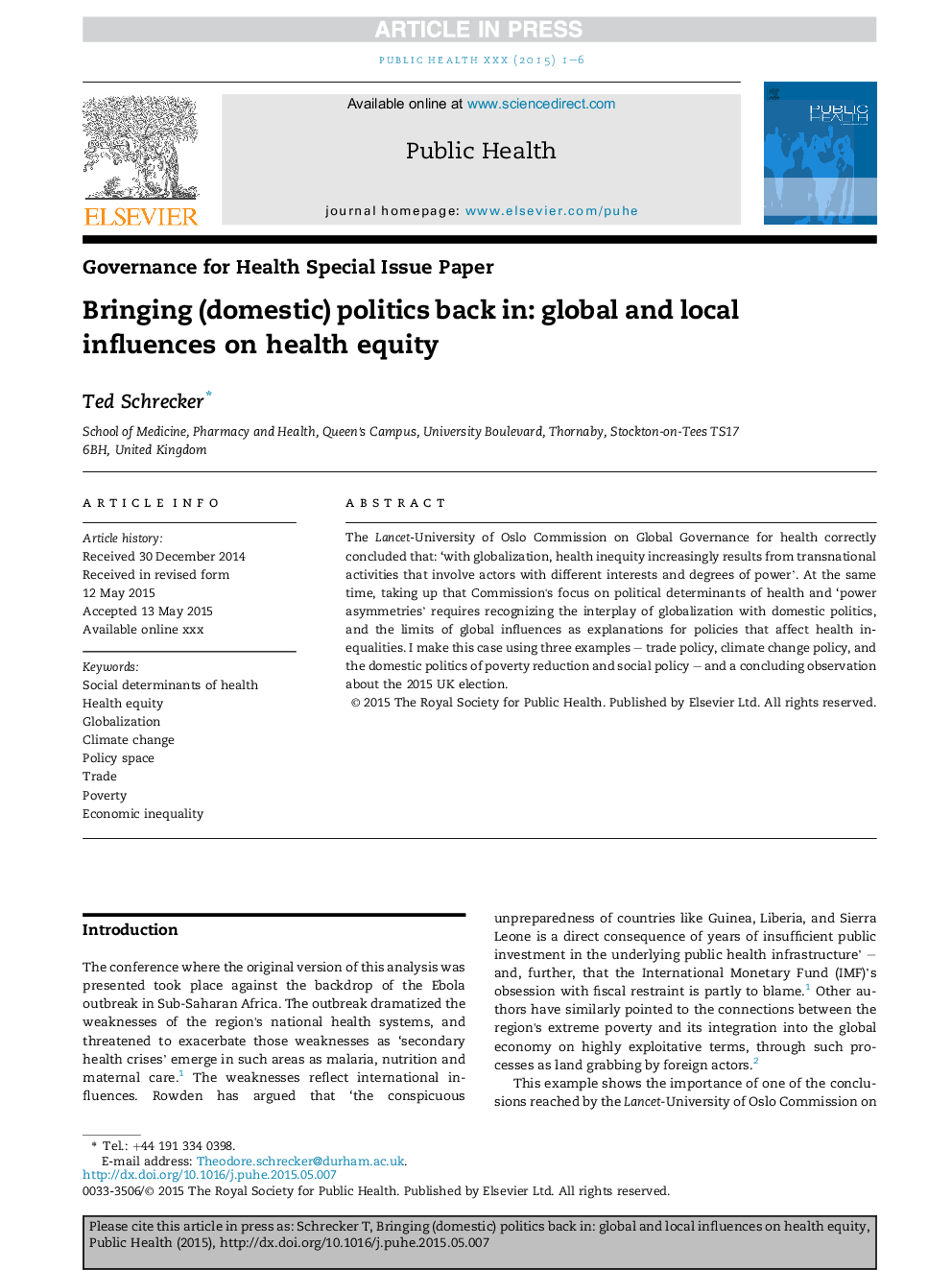| Article ID | Journal | Published Year | Pages | File Type |
|---|---|---|---|---|
| 10516277 | Public Health | 2015 | 6 Pages |
Abstract
The Lancet-University of Oslo Commission on Global Governance for health correctly concluded that: 'with globalization, health inequity increasingly results from transnational activities that involve actors with different interests and degrees of power'. At the same time, taking up that Commission's focus on political determinants of health and 'power asymmetries' requires recognizing the interplay of globalization with domestic politics, and the limits of global influences as explanations for policies that affect health inequalities. I make this case using three examples - trade policy, climate change policy, and the domestic politics of poverty reduction and social policy - and a concluding observation about the 2015 UK election.
Keywords
Related Topics
Health Sciences
Medicine and Dentistry
Infectious Diseases
Authors
Ted Schrecker,
